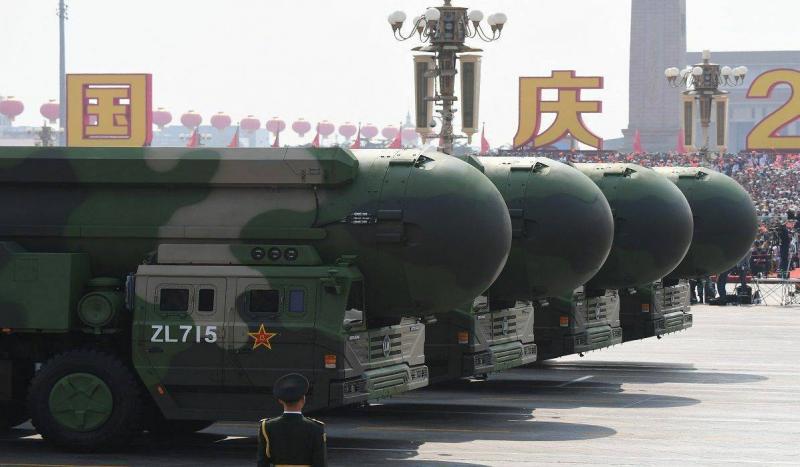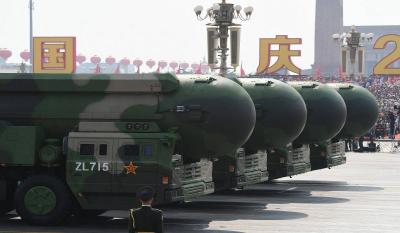The U.S. military reported in a recent study that the Chinese military has managed to improve the accuracy and range of its intercontinental ballistic missiles capable of carrying nuclear warheads. The report, cited by Bloomberg, noted that the short-range ballistic missile "DF-11," originally designed to strike targets up to 300 kilometers away, can now reach over 700 kilometers in its newer models, according to a military publication titled "Chinese Tactics," released on Monday by the American Institute of Physics, an organization focused on enhancing national security.
According to the report, the DF-11 missile can utilize both conventional and nuclear warheads and has "increased its accuracy to allow for precise long-range strikes." Additionally, mobile launchers enable quick launches and reloads. The U.S. military is attempting to reshape its forces to focus on presence in the Indian and Pacific Oceans and prepare for potential confrontations with China by coordinating efforts between air and naval forces. The new publication lists the longer-range and more accurate Chinese missiles that U.S. forces and Taiwan may face in any conflict.
Furthermore, the latest DF-15/16 missile has a range between 600 and 1000 kilometers. The U.S. report indicates that the Chinese are "employing advanced ballistic missile countermeasures, such as maneuvers and decoys." According to Bloomberg, the report, which discusses several other Chinese military capabilities, paints a picture of the military strength of a nation that U.S. leaders consider the primary threat driving strategic planning and expenditure.
In July, satellite images revealed that the Chinese government was digging a new site that appears to be for 110 nuclear missile launch platforms, located 1200 miles (about 2100 kilometers) west of Beijing. This underground base, according to The New York Times, is the second of its kind uncovered by analysts studying satellite images in recent weeks, indicating a "massive expansion of the Chinese nuclear weapons arsenal." This expansion reflects China's desire to possess superior economic and technological power, highlighting its readiness for a nuclear arsenal comparable to that of Washington or Moscow.
The U.S. expressed concern in early July following reports that China was enhancing its nuclear arsenal, urging Beijing to engage in dialogue to avoid a new arms race. U.S. Ambassador to the Geneva Disarmament Conference, Robert Wood, told reporters, "It is in everyone's interest for nuclear powers to discuss directly with each other about reducing nuclear risks and how to avoid miscalculation." Wood deemed the situation "extremely concerning," adding, "As long as China does not sit down with the U.S. at the bilateral level, the risk of a devastating arms race will continue to increase, and that will not be in anyone's interest." The diplomat pointed out that China claims to be a "responsible nuclear power" and that its "very, very small arsenal is purely for defensive purposes," but when one observes China's actions, it finds contradictions in its claims.




